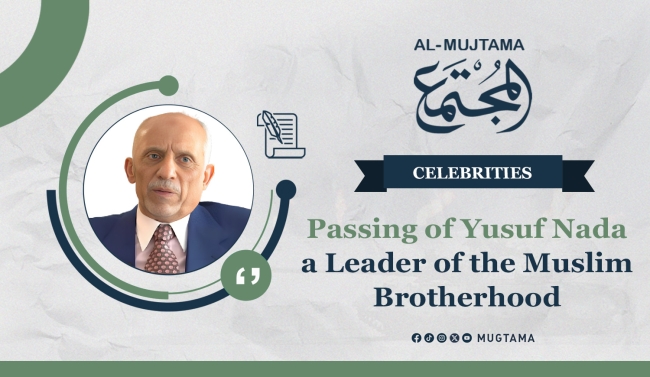Passing of Yusuf Nada a Leader of the Muslim Brotherhood
Yusuf Nada, the Egyptian businessman and a prominent leader of the Muslim Brotherhood, passed away today, Sunday, at the age of 93. Nada held significant positions within the Muslim Brotherhood, serving as the organization's international commissioner and playing important mediation roles between various countries.
Early Life and Career
Nada was born in Alexandria in 1931 and attended the Faculty of Agriculture at Alexandria University, where he graduated. He began his advocacy and political career at an early age, joining the Muslim Brotherhood in 1948 at the age of 17, becoming a member of the organization's second generation.
Influence and Leadership
Influenced by the teachings of the Brotherhood's founder, Sheikh Hassan al-Banna, Nada's intellectual and ideological orientations were profoundly shaped. His association with the Muslim Brotherhood was not merely membership; Nada was one of its most prominent leaders, leaving a lasting impact on its modern history.
Military Involvement and Imprisonment
In 1951, Nada participated in the Suez Canal War against British occupation. However, following the events of 1954, the Muslim Brotherhood faced severe repression from the Egyptian regime, leading to Nada's arrest in connection with the "Manshiyya" incident. He was released after two years of imprisonment.
Exile and Continued Activism
After his release from prison, Nada faced intense security harassment, including the confiscation of his assets, freezing of his accounts, and severe restrictions on his movements. These pressures forced him to emigrate in 1960 to Libya, where he established a strong relationship with King Idris al-Senussi, who granted him a Libyan passport, facilitating his travel to various global capitals.
Post-9/11 Accusations and Exoneration
Nada did not escape political accusations following the September 11, 2001 attacks. He was accused by then U.S. President George W. Bush of financing the attacks and supporting terrorism, leading to the freezing of his financial assets and placing him under house arrest in Switzerland.
Numerous intelligence agencies in Switzerland, Italy, and the United States investigated him, but he was exonerated after no evidence was found to incriminate him. In 2009, the United Nations Security Council removed Nada's name from the list of terrorism supporters at the request of the Swiss government.


